HDF5 data selection#
Data selection dedicated to HDF5 datasets (like bliss datasets).
Select the raw data and dark frames from disk.
Hint
for edf dataset see EDF data selection
Signals#
Outputs:
Dataset: output dataset
Inputs:
raw input file: file containing the raw data
dark input file: optional file containing the dark data (background)
Description#
Data widget retrieves selected files from disk, loads the data in a darfix dataset and sends it to the output. The files are stored in the local memory and the necessary information for the analysis is retrieved.
If the raw data is read only, the treated data path should be filled with the path of a directory with write access.
If the data doesn’t fit in memory, the in disk checkbox should be ticked.
Demo#
Tutorial#
1. Add the widget to the canvas#
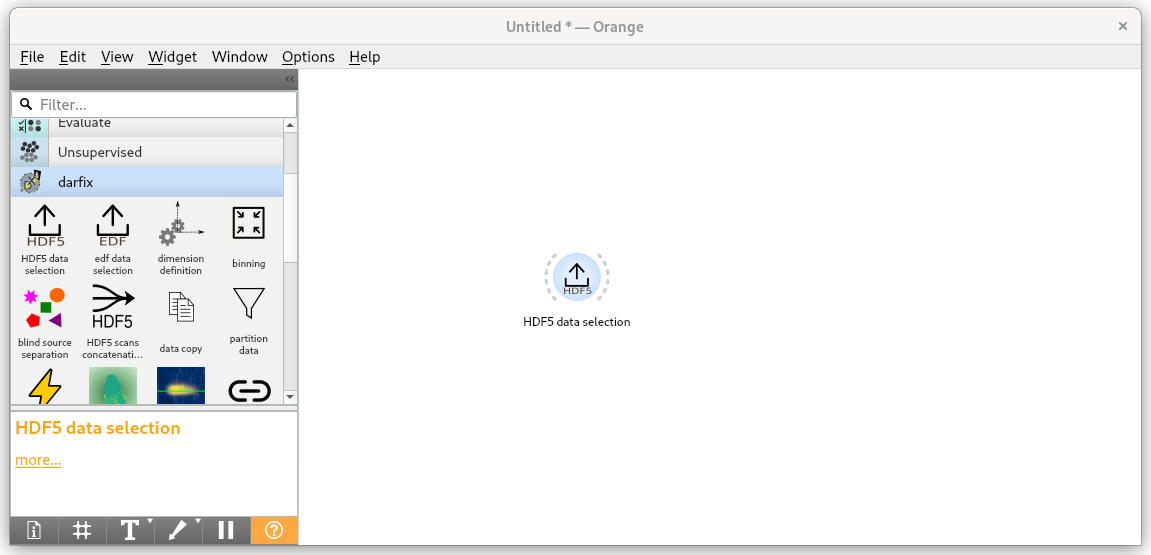
2. Open the widget interface#
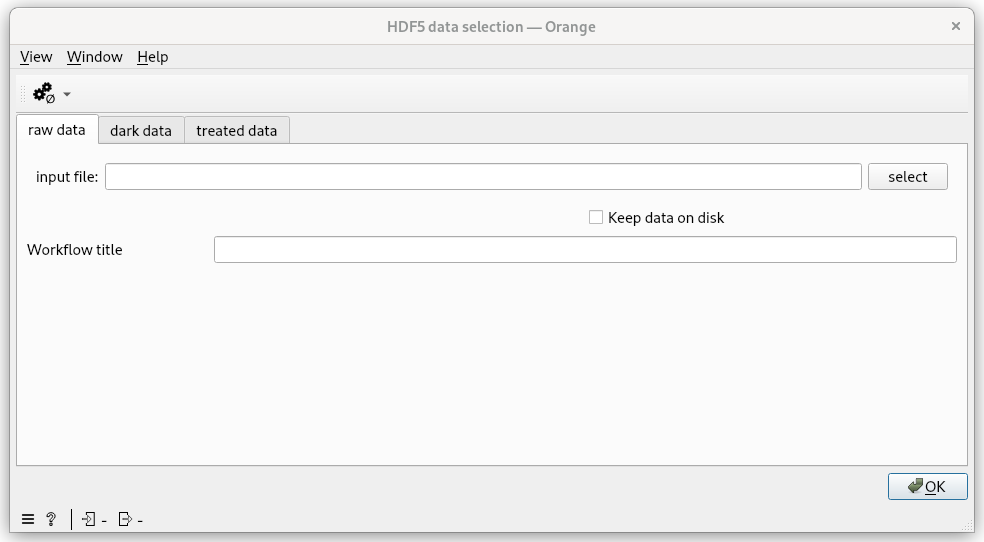
3. Select the file containing raw data#
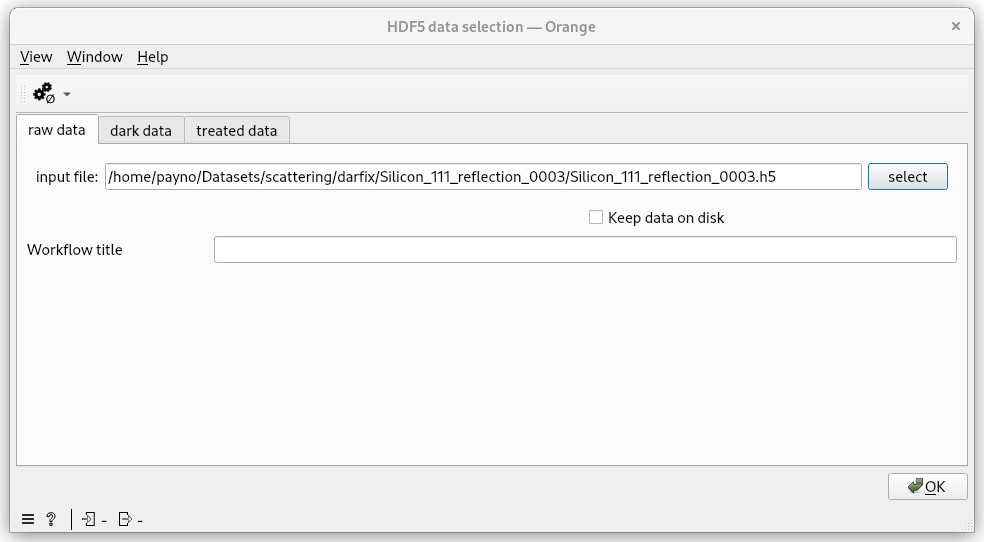
Note
darfix will retrieve from the file the detector and the motor positions (positioners) used for fitting dimensions. By default, it expects:
the path to the detector to be {scan}/measurement/{detector}/data
the path to positioners to be {scan}/instruments/positioners.
‘advanced’ mode allows to change the path to the detector and the positioner group in the case those are not stored at default location of if the file contains more than one scan. The advanced mode gives indications on the validity of the data path:
green dot: the pattern can be solved (with the current input file)
red dot: the pattern cannot be solved (with the current input file).
question mark: no file has been given. Select a file before specifying a pattern.
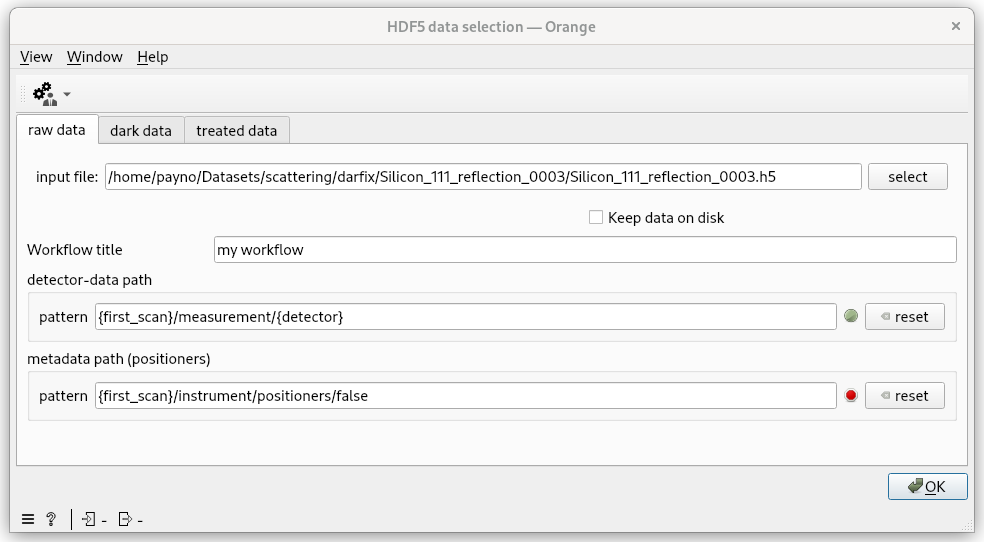
4. (optional) provide the file containing the dark data#
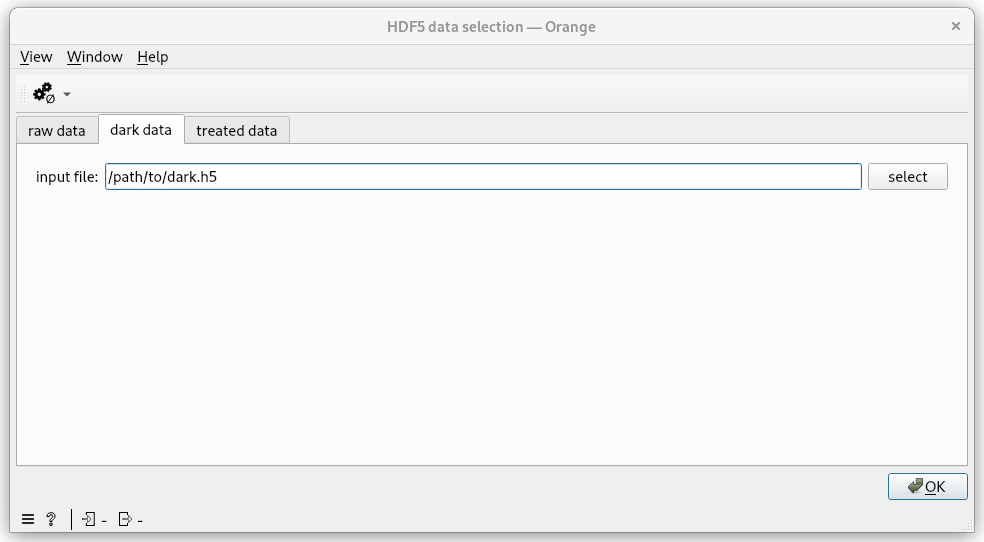
5. (optional) provide the treated data directory#
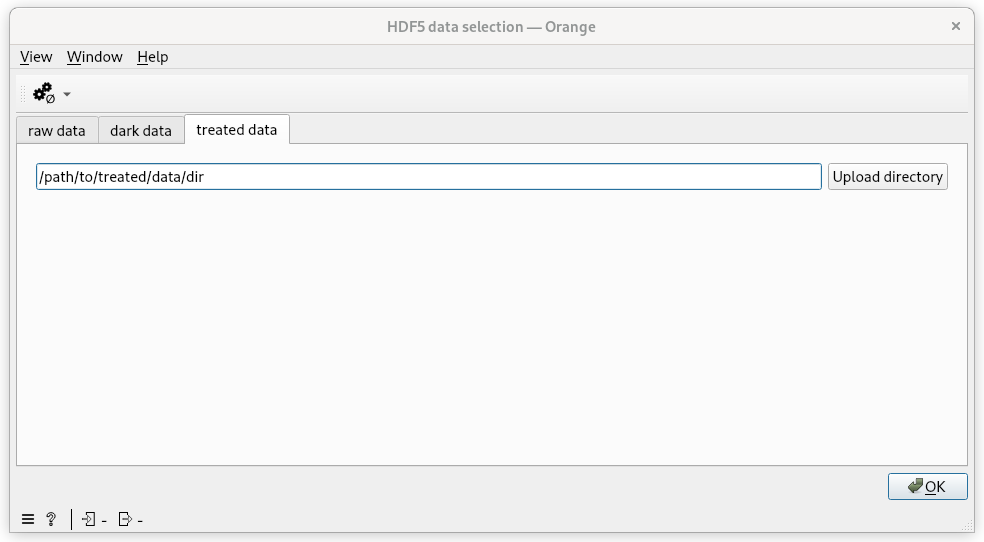
6. Validate#
click on the ‘Ok’ button. This will load the datasets and trigger downstream widgets (if any)